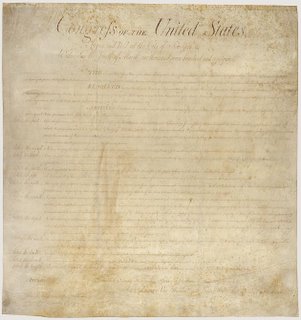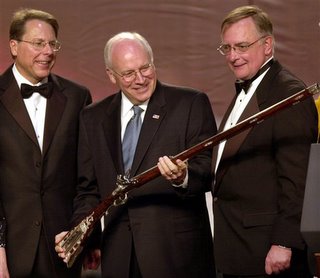Free the Pentagon Video
 Is there any facility in the world that you can imagine having more closed circuit TV cameras than the Pentagon? Yet, the world has still yet to see moving images of United Airlines Flight 77 allegedly hitting the Pentagon on 9/11/01. Why is that?
Is there any facility in the world that you can imagine having more closed circuit TV cameras than the Pentagon? Yet, the world has still yet to see moving images of United Airlines Flight 77 allegedly hitting the Pentagon on 9/11/01. Why is that?Since then, about a million theories have sprung up in opposition to the official story of the U.S. Government. In books and web sites, skeptics say a missile or a smaller military plane impacted the Pentagon. And, just by looking at the hole left behind, the small amount of damage done and the lack of any identifiable Boeing 757 parts or wreckage, these claims do not seem incredible or insane.
It would be quite simple for the government to release some CCTV video clearly showing the impact of that plane. But the Bush Administration has not done so, and has resisted Freedom of Information Act requests for the footage, claiming lamely the video is part of an ongoing Moussaoui investigation.
Now, in the past few days, the conservative group Judicial Watch has filed a lawsuit to get a release of the 9/11 Pentagon strike tapes:
Judicial Watch filed a lawsuit against the Department of Defense for withholding a video(s) that allegedly shows United Flight 77 striking the Pentagon on September 11, 2001. The Pentagon claims it cannot release the video because it is “part of an ongoing investigation involving Zacarias Moussaoui,” but this is a specious argument. Moussaoui already pled guilty in April 2005 for conspiring with al Qaida to fly planes into U.S. buildings. The death penalty phase of his trial is underway with jury selection nearly complete. What’s left to investigate? Moreover, while the Freedom of Information Act does allow an exemption for ongoing law enforcement investigations, the Defense Department does not even have law enforcement authority over Moussaoui. That belongs to the Department of Justice or the FBI. One reason we’re seeking the information to help put to rest conspiracy theories that a government drone or missile hit the Pentagon rather than the hijacked United airplane. Stay tuned…Somehow, I doubt we’ll ever see the video. But we should support Judicial Watch on this one.














